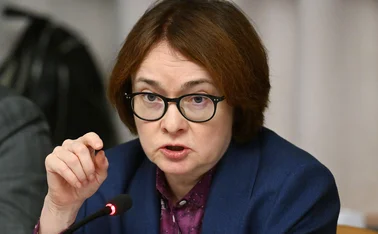
ECB credibility is damaged, say CBP panellists
Panellists at the fourth Central Banking ON AIR event agreed that while the European Central Bank's (ECB) independence had not been called into question during the eurozone crisis, its credibility had taken a knock.
Richard Portes, a professor of economics at the London Business School, Gabriel Stein, director of Lombard Street Research and Tim Young, a blogger and former reserves manager at the Bank of England, joined Nick Carver, publisher of Central Banking Publications, in a debate on the future of the euro in London on Tuesday.
"I don't think the ECB independence has been impacted at all," said Portes. Stein agreed, but said he was concerned about the institution's credibility, which had "taken a tumble". "They have repeatedly drawn lines in the sand and then gone past them," he said, and lamented how the ECB appears to have been "constantly pushed by events", being reactive, not proactive in its actions.
Young said there was "no doubt" the ECB's credibility had been damaged by "some bad decisions", such as the interest rate rises in the summer of 2008.
Portes argued that the uproar over instances where it has been suggested there is disagreement among senior members of staff at the ECB has been unnecessary. "You see dissent at the Bank of England and the Federal Reserve all the time, that's fine, no-one says they are going to fall apart," he said.
Discussing the future of the euro, Young said that while the single currency project remained on a "knife-edge", he still believed the euro would survive in its current state. "One reason is because people want to stay within the common currency. The focus of the crisis is on debt problems, and leaving the euro wouldn't solve that; 75% of Greeks want to keep the euro," he said.
Stein was quick to point out that countries in receipt of substantial eurozone support would "of course" love the euro – "it's the payers that don't", he added. He commented on how in Germany, Finland and Slovakia there was high-level discussion about ending such support.
Portes was less positive about the future of the euro project. "I regret to say it's 50:50 whether this is the end of the euro. The problems in the short term are in the bond markets and the banks and the interdependence between those two. We need to see intervention from the European Central Bank on a scale and in a way that is very different," he said.
Panellists spent some time discussing whether countries could default and still remain within the euro. Giving the example of the 1940s default of the state of Mississippi in the US, they concluded that yes, single currency markets could withstand a default by a member.
However, the situation in Italy caused severe concern. "Greece and Portugal are so small they are almost insignificant," said Stein. But Italy, he added, was more "important".
Portes believed both Italy and Spain were solvent. The underlying dynamism in the Italian economy had been damaged by years of "very bad government", he said, adding that he hoped the new government would know what to do to allow Italian entrepreneurship to flourish again.
Stein expressed concern about the recent trend of removing democratically elected governments and installing technocrat governments. But Portes drew on the example of the technocrat government in Italy in the 1990s, which proved "hugely successful".
Young warned that some of the proposed steps to help rescue the eurozone could end up damaging it in the longer term. "Countries signing guarantees or the idea of Eurobonds and so on kicks the can down the road – they are dangerous in the long run," he said. "If these ideas go wrong, people will turn hostile towards the eurozone."
The possibility of an orderly exit of one or more member states from the common currency drew lively debate from the panellists. Stein said such a scenario was "unlikely" and if one country were to leave it would open the gate for others to follow, causing even more market uncertainty in the process. However, he said "survival of the euro as we know it relies on some countries leaving", despite it not being a "smooth or painless" process.
Young was critical of past decisions, saying it would have been "better to let Greece default at the beginning" of the crisis. He said he thought insolvent countries "should be allowed to default, but stay on in the euro. It will leave peripheral countries with competitiveness problems, but I think they will be so keen to stay in they will accept that".
Portes took a grim view on any countries leaving the euro. "Imagine what would happen, what do depositors in the remaining countries do? No bank is safe, so they want to get their money out. That would be the end of the euro, a generalised run on banks."
He added that going forward, "we need a much improved system of economic governance. We have weeks, days maybe to keep this show on the road".
The full webinar is available to view here.
Only users who have a paid subscription or are part of a corporate subscription are able to print or copy content.
To access these options, along with all other subscription benefits, please contact info@centralbanking.com or view our subscription options here: http://subscriptions.centralbanking.com/subscribe
You are currently unable to print this content. Please contact info@centralbanking.com to find out more.
You are currently unable to copy this content. Please contact info@centralbanking.com to find out more.
Copyright Infopro Digital Limited. All rights reserved.
As outlined in our terms and conditions, https://www.infopro-digital.com/terms-and-conditions/subscriptions/ (point 2.4), printing is limited to a single copy.
If you would like to purchase additional rights please email info@centralbanking.com
Copyright Infopro Digital Limited. All rights reserved.
You may share this content using our article tools. As outlined in our terms and conditions, https://www.infopro-digital.com/terms-and-conditions/subscriptions/ (clause 2.4), an Authorised User may only make one copy of the materials for their own personal use. You must also comply with the restrictions in clause 2.5.
If you would like to purchase additional rights please email info@centralbanking.com







